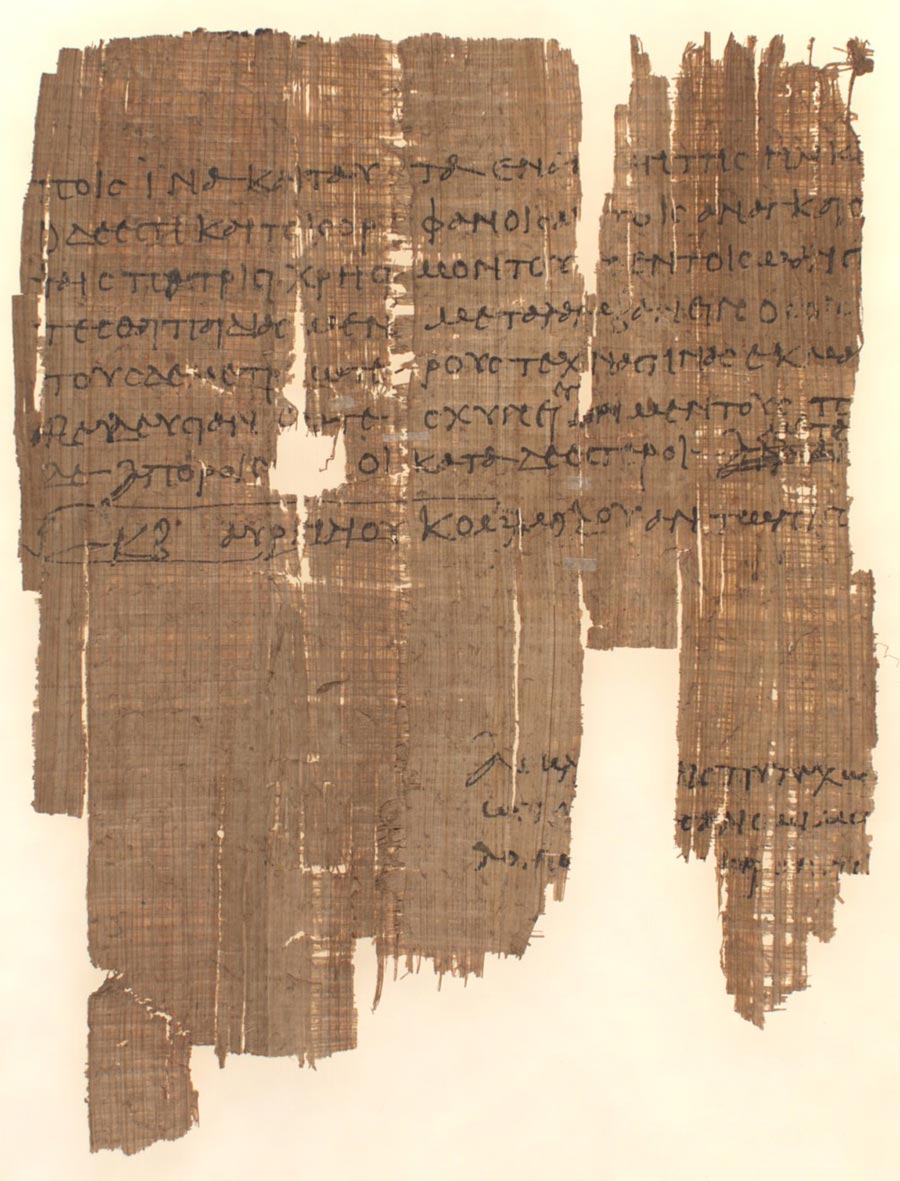Education of Children

THE EDUCATION OF CHILDREN IN ROMAN EGYPT WAS not compulsory or universal; there was no public school system, and relatively few children were taught to read and write. Formal education was restricted mostly to boys of the scribal or administrative class, who were taught Greek. Otherwise, both boys and girls could be informally educated in the home by relatives, learning to write Greek and Egyptian with different degrees of accuracy. Writing was taught by imitation and copying (as in the list of words), assisted by the use of writing-related toys (like the miniature desk, writing board, and toy book), while the papyrus doll may have been made from scraps from a classroom.
TOYS AND GAMES HAD A SERIOUS SIDE in Roman Egypt. Toy tools and models of household objects helped children learn about the occupations and activities they would follow when they grew up. By playing with these toys, the children of Roman Egypt emulated the farming, soldiering, care-giving and other activities that they would someday have to perform. Certain toys (wooden clappers, figurines, dolls) may have also had ritual or magical functions. Ironically, some of the objects of pure play that survive, like the dice and gaming pieces, were more probably evidence of adult pastimes.
Document written on papyrus

THE CASE FOR THE EDUCATION OF ORPHANS
What is necessary to the orphans themselves [and also] useful to their home lands that [needs] to be especially [emphasized] is that those who [have property] get an education, and that the poorer ones learn thoroughly some craft. [For a] lack of education dishonors wealthy men, and for people without resources, a life [without training is] inferior.








